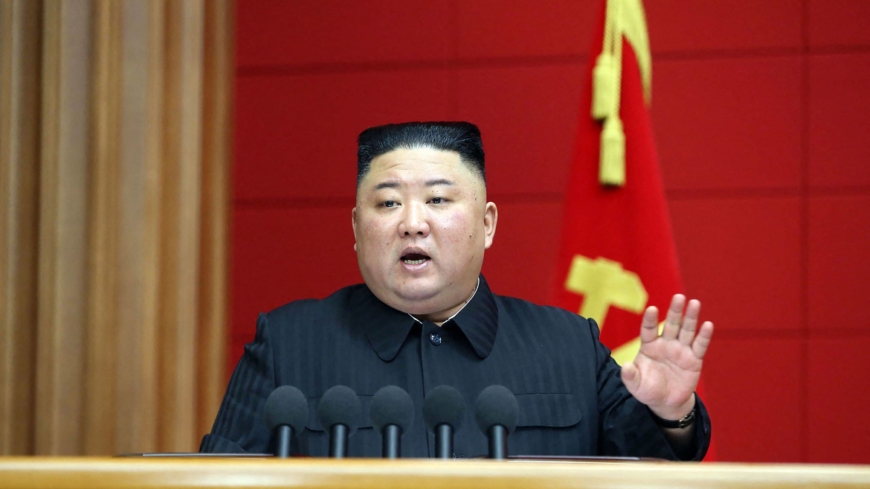[ad_1]
North Korea ruled out further talks with the U.S. for now as Kim Jong Un’s regime sought to raise pressure on top Biden administration officials visiting Seoul.
A senior North Korean diplomat confirmed Thursday that Pyongyang had rejected numerous overtures from Washington over the past month, dismissing them as a “time-delaying trick.â€
“It will only be a waste of time to sit with the U.S., as it is not ready to feel and accept new change and new times,†First Vice Foreign Minister Choe Son Hui said, according to the official Korean Central News Agency.
The statement — coming in the middle of the first South Korea trip by U.S. Secretary of State Antony Blinken and Defense Secretary Lloyd Austin — highlighted one of the biggest security dilemmas facing the new administration. The American Cabinet officials have been huddling with regional allies this week as part of President Joe Biden’s efforts to formulate a new approach to North Korea and China.
Blinken shrugged off Choe’s comments, saying the U.S. was focused on consulting partners to draft policy plans. When asked about Biden’s willingness to meet Kim, he said “everything is on the table.â€
“There are different kinds of pressure points that might convince North Korea to make progress,†Blinken said after meeting South Korean Foreign Minister Chung Eui-young and Defense Minister Suh Wook. “The goal is to really figure out how we have the best chance in resolving the challenges posed by North Korea to us and unfortunately to its own people.â€
Despite former U.S. President Donald Trump’s decision to hold three face-to-face meetings with Kim, North Korea has continued to expand and upgrade its nuclear weapons program. The Biden administration must also overcome strains with Seoul after a bruising troop-funding fight, which the allies formally resolved Thursday by signing a six-year deal.
South Korean President Moon Jae-in — a longtime advocate for reconciliation — has expressed a desire to re-engage Pyongyang before his single five-year term ends next year. The allies still appeared split over issues ranging from whether the reaffirm Trump’s 2018 declaration with Kim, to how much emphasis to place on human rights, said Duyeon Kim, an adjunct senior fellow for Indo-Pacific security at the Center for a New American Security.
“It’s a good start atmospherically, but they still have their work cut out for them,†she said. “So we’ll have to see if and how they narrow their gaps and truly work in lock step as allies should.â€

While Blinken said that Biden’s approach toward North Korea was still under review, he stressed China’s “clear self-interest†was in getting its neighbor and Cold War ally back to the table. The U.S. secretary of state and National Security Adviser Jake Sullivan are expected to meet top Chinese diplomats later Thursday in Alaska for the administration’s first in-person talks with Beijing.
Earlier this week, Kim Yo Jong, the North Korean leader’s sister, complained about U.S.-South Korea joint military drills that began this month, warning the new team in Washington against “causing a stink.†Choe, the North Korean diplomat, echoed those remarks, calling the exercises evidence of the U.S.’s “hostile policy,†even though they’re mostly computer-based.
Blinken confirmed earlier this week that the administration hasn’t received any response from Pyongyang. At the same time, he criticized North Korea for human rights abuses, a change in tone from the past administration, which had largely avoided the subject after Trump’s decision to hold summits with Kim Jong Un in Singapore and Hanoi, as well as meeting him inside the Demilitarized Zone buffer that divides the two Koreas.
Before becoming secretary of state, Blinken had called Trump’s personal diplomacy a failure and advocated for a multilateral approach that seeks disarmament in stages. North Korea had balked at Trump’s suggestion that it must give up its nuclear weapons program completely before receiving relief from sanctions choking its economy and sought an incremental approach of rewards for disarmament steps.
“We make it clear that we won’t give it such opportunities as in Singapore and Hanoi again,†Choe said.
Mark Tokola, vice president of the Korea Economic Institute of America and a former U.S. diplomat posted in Seoul, told Bloomberg Television that the incentives for North Korea to talk haven’t changed even though the U.S. administration has.
“The ball is actually North Korea’s court. They’re the ones who have to agree to talk — it can’t be a one-sided gesture,†Tokola said. “North Korea needs economic help and they need international acceptance. So there’s reason to talk.â€
In a time of both misinformation and too much information, quality journalism is more crucial than ever.
By subscribing, you can help us get the story right.
[ad_2]
Source link








